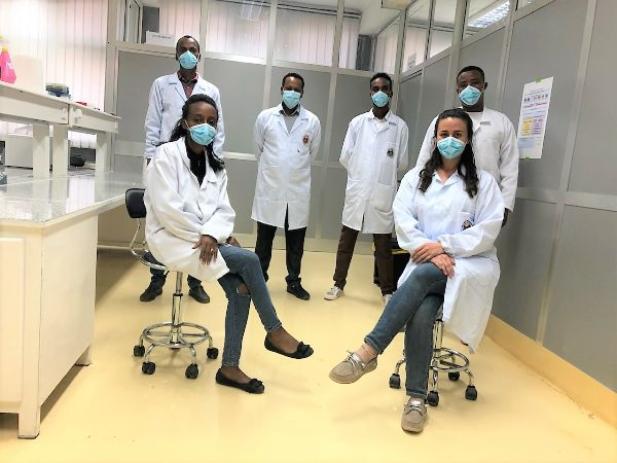Learn more about CAMPYLOBACTER GENOMICS AND ENVIRONMENTAL ENTERIC DYSFUNCTION (CAGED)
CAGED strives to determine the reservoirs and pathways associated with Campylobacter infections in young children. These bacterial infections are known to impact child health by impairing the gut microbiome, nutrition, and growth. Current research has indicated that the high prevalence of Campylobacter in early childhood is associated with adverse child health outcomes such as stunting and environmental enteric dysfunction.
The Bill & Melinda Gates Foundation-funded this study is progressing into the longitudinal phase, aiming to address three objectives:
- Assess the prevalence, species composition, and genomic diversity of thermotolerant and non-thermotolerant Campylobacter species in young children, adults, livestock, and other reservoirs in rural eastern Ethiopia.
- Determine the attribution of Campylobacter infections in young children to humans, livestock, and environmental reservoirs based on the genetic population of Campylobacter species.
- Assess the associations among the presence of Campylobacter species, gut microflora, and adverse child health outcomes such as stunting and environmental enteric dysfunction.
In addition to understanding the pathways related to Campylobacter, this project aims to promote capacity building opportunities with local collaborators through cross-training in microbiology and social science concepts and skills. It also looks to, promotes adaptive learning, including assisting with laboratory methods through the supply of lab equipment, expert guidance, and reagents for all testing purposes.
This project is led by preeminent professor, Dr. Arie Havelaar from the Institute for Sustainable Food Systems, Emerging Pathogens Institute and Animal Sciences Department, and Dr. Sarah Mckune, Research Assistant Professor in the Department of Environmental and Global Health and the Center for African Studies. This project requires support from various collaborators including Haramaya University, (Dire Dawa, Ethiopia), Ohio State University (Columbus, Ohio, USA), Washington University, (St. Louis, Missouri, USA), and Massey University (, Palmerston North, New Zealand).
If you are interested in learning more, click here.



